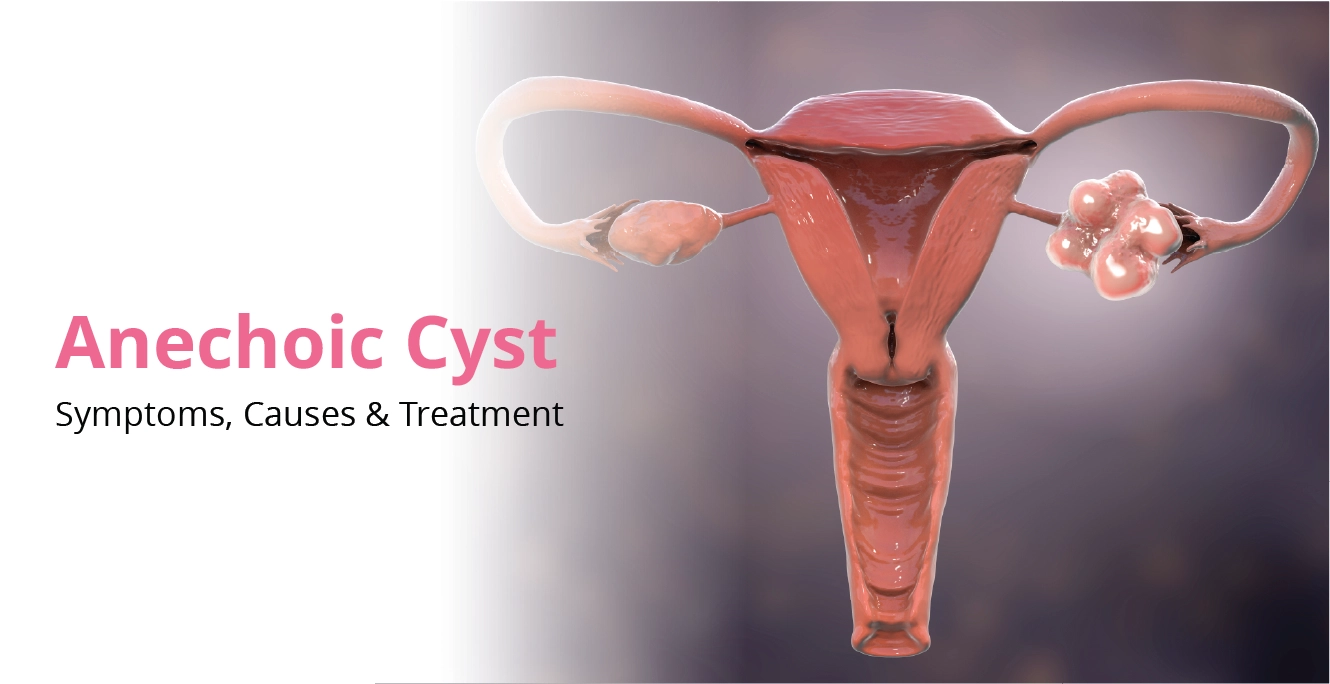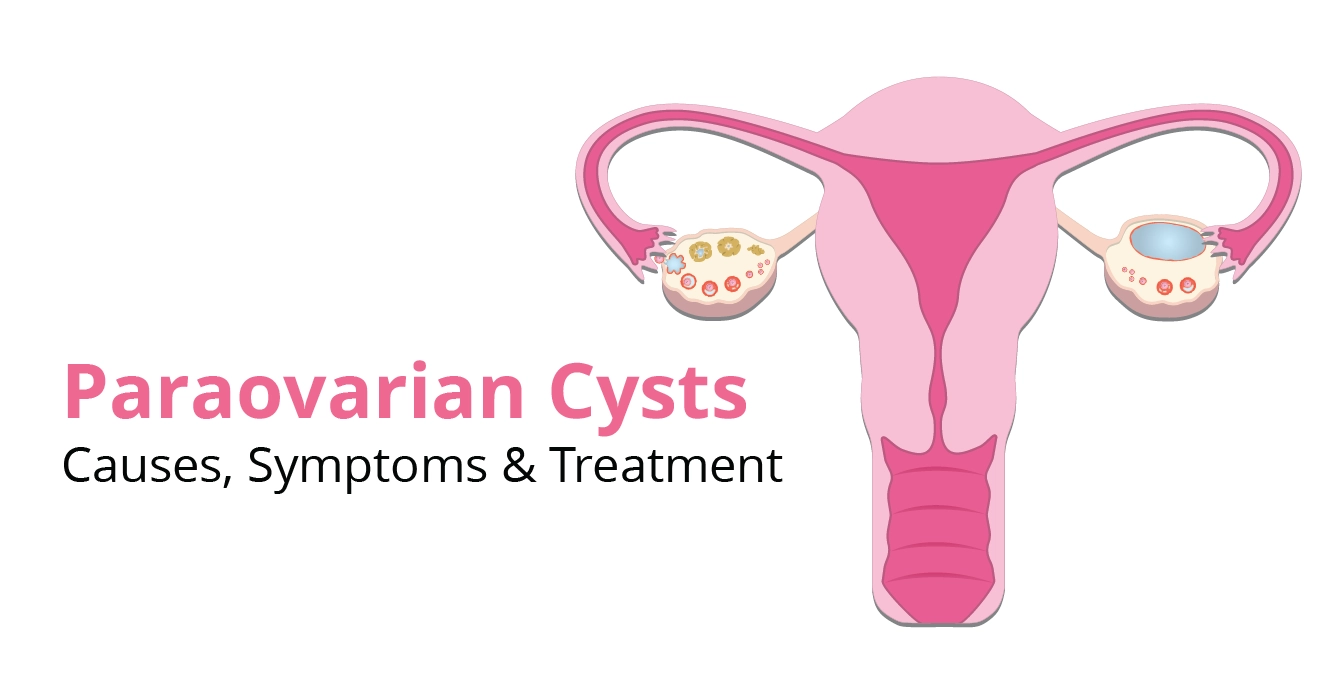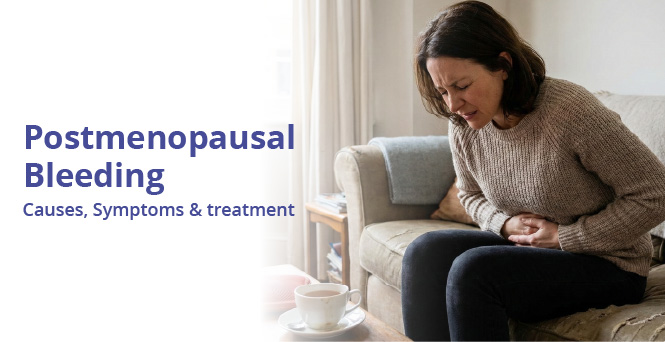
Hyperandrogenism: Causes, Symptoms & Treatment

Table of Contents
Ever notice sudden acne, unwanted facial hair, or hair thinning and wonder why it’s happening?
Well, these could be the signs of hyperandrogenism.
But what is it?
It is a condition where the body produces higher-than-normal levels of male hormones, i.e., androgens, in women. There is some amount of androgen already present in women naturally; however, when found in excess, it can lead to irregular periods, affect fertility, and more. You will also find visible changes in the appearance.
Good news? With the right diagnosis and treatment, one can manage these symptoms effectively. Let’s understand briefly all the symptoms, causes, and treatment options for hyperandrogenism.
What Is Hyperandrogenism?
When your body produces too many androgens, you have hyperandrogenism. These hormones are responsible for the bodily growth, reproductive health, and the onset of puberty.
As we already know, everyone produces androgens. However, men usually produce far more than women. One of the well-known androgen hormones is testosterone. It is produced by the ovaries, testicles, and the adrenal glands. Approximately 5–10% of women who are of reproductive age suffer from hyperandrogenism. Males are less likely to have it.
It depends on your age and sex. There can also be varied symptoms. Healthcare professionals can treat the condition in a variety of ways.
Hyperandrogenism vs. PCOS: Understanding the Difference
Hyperandrogenism is the term for higher-than-normal levels of male hormones, such as testosterone, in a woman’s body. Although it is a common symptom of Polycystic Ovary Syndrome (PCOS), it is not the same as the latter. PCOS is a more general hormonal condition that includes metabolic issues, irregular periods, and ovarian cysts. Hyperandrogenism may indicate a hormonal imbalance that needs more research, even though it does not show PCOS on its own.
Symptoms of Hyperandrogenism
The symptoms of hyperandrogenism depend on your sex and whether you have gone through puberty or not.
There is a possibility that you might not experience any symptoms even when you have high testosterone levels. If you see that symptoms develop suddenly, then you must immediately consult your healthcare professionals as soon as possible. An androgen-secreting tumour is frequently the reason in this situation.
Symptoms of high androgens in females (those who have not reached puberty):
- Enlarged clitoris
- Oily skin with acne
- Hirsutism or excessive body hair
Symptoms of high androgens in males (those who have not reached puberty):
- Enlarged penis
- Excessive or premature pubic and armpit hair growth
- A deep voice
Signs of hyperandrogenism (those who have reached puberty):
- Acne and oily skin
- Hirsutism, or excessive body hair growth
- Unusual periods
- Male-pattern baldness
Depending on whether the hormones are generated by your adrenal glands or by an outside source, like anabolic steroid injections, the effects of hyperandrogenism in adult males differ. Usually, elevated adrenal androgen levels don’t show any obvious symptoms. They could, however, affect testicular function and lead to infertility.
Causes of Hyperandrogenism
There can be causes behind hyperandrogenism, which include both hormonal and metabolic imbalances. Here are the most popular causes:
- Polycystic Ovary Syndrome (PCOS): It is one of the most common causes behind hormonal imbalance that induces hyperandrogenism. In this, the ovaries produce higher levels of androgen, disrupting ovulation.
- Congenital Adrenal Hyperplasia (CAH): This is a genetic disorder that affects the adrenal glands, which leads to excess androgen production.
- Adrenal Tumors: If there are tumors in the adrenal glands, they can secrete androgens abnormally.
- Ovarian Tumors: There are certain ovarian growths that can produce excess testosterone and other male hormones.
- Cushing’s Syndrome: In case you have high cortisol levels, it can indirectly increase the levels of androgen in one’s body.
- Medications: There are some drugs, like anabolic steroids or danazol, that can increase the levels of androgen.
- Insulin Resistance: Common in PCOS, it stimulates the ovaries to make more androgens.
- Genetic Factors: Family history can play a role in hormonal imbalances, causing hyperandrogenism.
What are the Risk Factors in Hyperandrogenism?
Several factors can increase a woman’s risk of developing hyperandrogenism, including:
- Family History: If you have family members or relatives who have PCOS, diabetes, or other hormonal disorders, then you can be at higher risk.
- Obesity: If you are facing obesity, then the excess body fat might increase resistance to insulin, which results in higher androgen production.
- Sedentary Lifestyle: Lack of physical activity leads to weight gain and worsens hormonal imbalance.
- Unhealthy Diet: If your diet includes excessive refined carbs, sugar, and processed foods, then you can be at high risk.
- Chronic Stress: We all know that stress is bad for our mind and body, and stress hormones like cortisol affect adrenal gland function, which increases androgen secretion.
- Puberty and hormonal changes: Early puberty or hormonal fluctuations during pregnancy and menopause can trigger an imbalance.
- Underlying endocrine issues: Conditions like adrenal hyperplasia or thyroid disorders can elevate androgen levels.
Are There Any Complications?
If left untreated, hyperandrogenism can lead to several short- and long-term health complications, including:
- Infertility: When you have high androgen levels, it can interfere with your ovulation, making it complicated and difficult to conceive.
- Irregular Periods: There is a chance of missed or unpredictable menstrual cycles.
- Polycystic Ovary Syndrome (PCOS): Persistent hyperandrogenism is a key feature of PCOS.
- Insulin Resistance & Type 2 Diabetes: High levels of androgen can affect blood sugar regulation.
- Weight Gain & Obesity: When there are hormonal changes, it can promote fat accumulation, especially around the abdomen.
- Acne & Excess Hair Growth: Increased androgens stimulate hair follicles and oil glands.
- Hair Thinning or Scalp Hair Loss: It is also known as female-pattern baldness.
- Cardiovascular Issues: Long-term imbalance raises the risk of high cholesterol and heart disease.
How Do Doctors Diagnose Hyperandrogenism?
A physical examination will be conducted by your healthcare professional to look for symptoms of the illness, such as excessive body hair growth.
Additionally, they will enquire about your medical history in a number of ways, such as:
- When did your breasts begin to develop
- The age at which pubic hair first appeared
- The age at the onset of your period
- How often, how long, and how heavy your periods are
- If you’ve taken testosterone or anabolic steroids
Your doctor will conduct blood tests to measure certain hormone levels if they suspect hyperandrogenism:
- Total testosterone: This is the sum of all the testosterone that is present in your blood. People with PCOS frequently have somewhat higher levels of total testosterone. Extremely high levels could be a sign of a testicular or ovarian tumour.
- Free testosterone: This type of testosterone makes up a very minor portion of total testosterone and is not bound to any proteins. PCOS patients may have higher levels of free testosterone.
- Androstenedione: This steroid hormone functions in your body similarly to androgen hormones. PCOS may be indicated by elevated levels.
- Dehydroepiandrosterone sulphate (DHEAS): PCOS is frequently associated with a slightly higher DHEAS level. An adrenal tumour may be indicated by extremely high levels.
- 17-hydroxyprogesterone: Screening for non-classic congenital adrenal hyperplasia is done with 17-hydroxyprogesterone.
Is It Reversible?
If you are wondering how to treat high testosterone in a woman and a man then proper treatment and lifestyle changes are the only solutions. There are some cases in which hyperandrogenism can be managed. However, it depends on the seriousness and the underlying cause behind it.
- If the cause is insulin resistance or PCOS, controlling hormones with diet, exercise, and medication can greatly lessen symptoms.
- Normal hormone levels are frequently restored when stress or specific drugs are addressed as causes.
- Although it might not be completely reversible in cases associated with genetic or adrenal diseases, symptoms can be successfully managed.
The Bottom Line
You don’t have to live with hyperandrogenism in silence, even if it can feel overwhelming given its visible symptoms and effects on fertility. The illness can be successfully controlled and, in many cases, reversed with early identification, lifestyle modifications, and appropriate medical care.
The first step is to pay attention to your body’s cues, such as irregular periods, acne, or excessive hair growth. Speaking with a trained expert guarantees that you will receive a customised plan that enhances your general health and self-esteem while assisting in the restoration of hormonal equilibrium.
Our Fertility Specialists
Related Blogs
To know more
Birla Fertility & IVF aims at transforming the future of fertility globally, through outstanding clinical outcomes, research, innovation and compassionate care.
Had an IVF Failure?
Talk to our fertility experts

 Our Centers
Our Centers
















